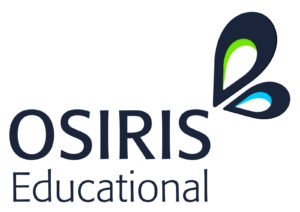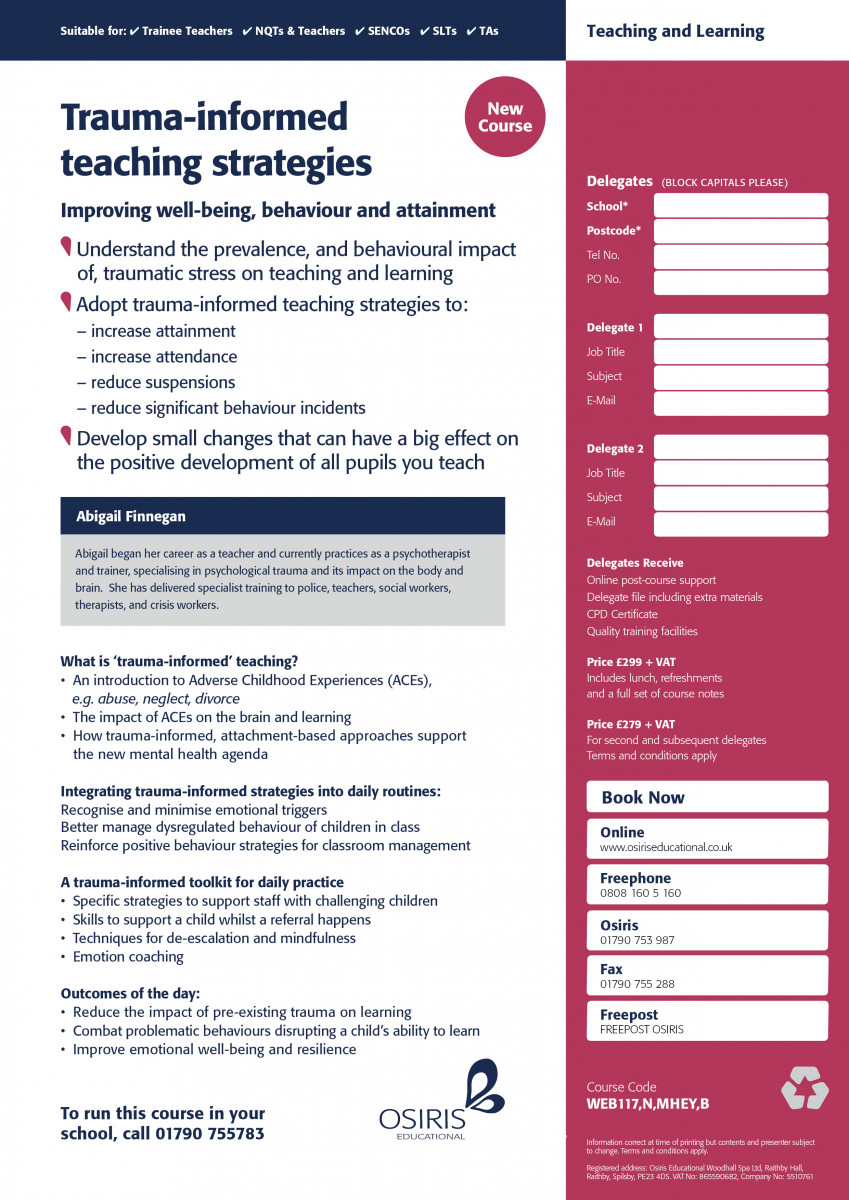Menu
Trauma-informed teaching strategies
-
Improving well-being, behaviour and attainment
-
Understand the prevalence, and behavioural impact of, traumatic stress on teaching and learning
-
Adopt trauma-informed teaching strategies to:
– increase attainment
– increase attendance
– reduce suspensions
– reduce significant behaviour incidents
-
Develop small changes that can have a big effect on the positive development of all pupils you teach
Share this with a colleague:
Description
What is ‘trauma-informed’ teaching?
-
An introduction to Adverse Childhood Experiences (ACEs), e.g. abuse, neglect, divorce
-
The impact of ACEs on the brain and learning
-
How trauma-informed, attachment-based approaches support the new mental health agenda
Integrating trauma-informed strategies into daily routines:
Recognise and minimise emotional triggers
Better manage dysregulated behaviour of children in class
Reinforce positive behaviour strategies for classroom management
A trauma-informed toolkit for daily practice
-
Specific strategies to support staff with challenging children
-
Skills to support a child whilst a referral happens
-
Techniques for de-escalation and mindfulness
-
Emotion coaching
Outcomes of the day:
-
Reduce the impact of pre-existing trauma on learning
-
Combat problematic behaviours disrupting a child’s ability to learn
-
Improve emotional well-being and resilience
brochures
Additional information
| Course Type | SEND, Teaching & Learning |
|---|---|
| Job Title | |
| Key Stage | Early Years, Key Stage 1, Key Stage 2, Key Stage 3, Key Stage 4, Key Stage 5 |


